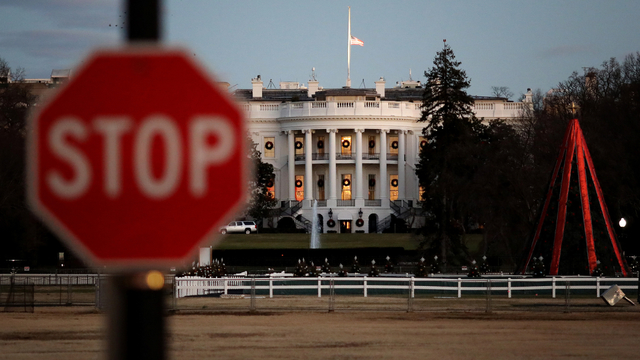How a Government Shutdown Affects Small Contractors
With another federal government shutdown looming, construction contractors are bracing for more uncertainty. Small contractors, in particular, can be the most vulnerable to outside influences, wrote Vic Lance in Construction Executive during the recent 35-day federal government shutdown. Here are some of the concerns contractors may face again:
- Construction companies working for government bodies may have to pause projects and wait for due payments until the shutdown is over. This affects contractors performing services for the Departments of Agriculture, Commerce, Justice, Homeland Security, Housing and Urban Development, Interior, State, Transportation and the Treasury, as well as some of the smaller federal agencies.
- The Small Business Administration (SBA) may put its loans on hold again. The delays can cost a lot for small contractors that are expecting to receive SBA funding in order to purchase equipment or take other business requiring financing.
- The SBA Surety Bond Program may be halted again, which is a serious hurdle for contractors that need its assistance.
- Lack of funding may prevent the E-Verify system from working. Employers use the system to verify the employment eligibility of workers—an obligatory step for federal construction projects and a number of public contracts.
To understand all the ways a government shutdown affects small business, read Lance’s full analysis here.
Union Membership Decreased in 2018
The percentage of union members in construction nationwide has decreased by more than a percentage point, from 14 percent in 2017 to 12.8 in 2018, according to the U.S. Bureau of Labor Statistics. BLS estimates 2018 total construction employment was 8.169 million workers, up from 7.844 million in 2017. A total of 1.048 million workers in construction belong to a union. As the number of total employees in construction has risen and the total number of construction employees in unions has stayed consistent, one can conclude that many of the new workers entering the industry are declining to join their local union.
Read more key findings here. Additional BLS union data will be published in the coming weeks.
Government-Mandated PLAs Bad for Business
Government-mandated Project Labor Agreements (PLAs) are keeping merit shop contractors—who represent 9 out of 10 construction workers in the State of Maryland—from bidding on taxpayer-funded construction projects, according to a recent nationwide survey of ABC members. A full 98 percent said they were less likely to bid on these projects if the winning firm was required to sign a PLA with labor unions.
The survey results show that the ripple effects of PLAs spread throughout the economy. A construction contract that required a PLA would be more expensive compared to a contract procured via free and open competition, said 98 percent of survey respondents. Ninety-seven percent of survey respondents said a PLA would result in worse local hiring outcomes for a project. In addition, almost 90 percent of respondents agreed that a PLA would decrease the hiring of women, veteran and disadvantaged business enterprises and construction workers, which have traditionally been unaffiliated with labor unions.
Read more about the harms of government-mandated PLAs here.

